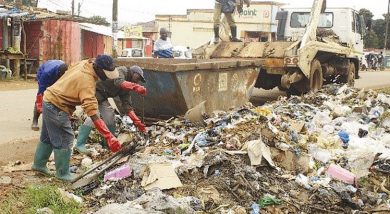Is agri-bank the answer?

As Malawi considers the idea of establishing a farmers’ bank, EPHRAIM NYONDO assesses the potential of the proposed institution to turn around the fortunes of the agricultural industry in the country.
The debate over how Malawi can enhance agricultural production and productivity to boost its agri-business potential is as old as the country itself.
However, experts and policy makers have not reached a consensus on how this can be achieved.
Some experts have touted commercialisation of the sector as the key to actualising the dream.
The idea is to challenge farmers to view agriculture not only as a means for subsistence and basic survival but also as a commercial undertaking.
“Let us have more farmers participating in the market,” former Farmers Union of Malawi (FUM) president Felix Jumbe loved to say.
Although his views resonated with many, the ‘how’ part led political economist Michael Jana to argue that interventions in agriculture should be built on a solid understanding of the situation a typical smallholder farmer faces.
Jana said the portrait of a Malawian smallholder farmer is that of a poor person who lacks the means to increase the yield on his small piece of customary land.
Most of the 4.5 million smallholder farmers in Malawi, who constitute the bulk of players in the sector, live in rural areas where retail banking and other financial services are limited, if not absent.
Jana’s argument is that if the country does not address the problems smallholder farmers are facing to increase productivity, initiatives to improve the situation in the sector are doomed.
As one way of improving the situation, in August this year government floated the idea of setting up an agricultural bank to provide credit to farmers.
Government said discussions are underway with financial institutions to establish a medium to long-term loan facility for farmers.
The idea was mooted against the background that unlike other countries, Malawi does not have special financial institutions to provide credit to farmers.
According to Principal Secretary in the Ministry of Agriculture and Food Security Dr Jeffrey Luhanga, most agricultural activities require investment in the form of medium to long-term loans, which he said are difficult to access.
“Within government, this issue is being discussed with the private sector interested to set up this facility. It is something that is seriously under consideration,” he said.
Luhanga said the introduction of the Integrated Production System (IPS)—a system in which tobacco buyers combine farming and marketing strategies—in the tobacco sector last year is one such initiative that enables farmers to access loans from banks to boost production.
The expectation that the proposed farmers’ banks would also target smallholder farmers excited the Civil Society Agriculture Network (Cisanet).
Cisanet national director Tamani Nkhono-Mvula said banks in Malawi view agriculture as a risky investment; hence, they are reluctant to lend to farmers.
“Malawi does not have an agricultural bank and the commercial banks that we have consider agriculture to be a risky venture for them to invest in. As such, getting loans from the bank for agriculture is not easy,” he said.
According to Nkhono-Mvula, this is one of the factors that have kept the country stuck in subsistence farming and the use of primitive tools such as hoes.
Jonasi Mbingwa, an agribusiness specialist at the Lilongwe University of Agriculture and Natural Resources (Luanar), said a farmers’ bank would be a huge stride in the country’s agriculture.
“Most of the farmers lack capacity. The reason we subsidise farm inputs like fertiliser and seeds is because most farmers do not have enough money to buy them.
“I think with an effective agricultural bank, we can create a conducive environment for our farmers to get loans from the banks and meet their costs. This would not just help to increase production but also it would be an exit strategy for fertiliser subsidy which is very expensive to tax-payers,” said Mbingwa.
While supporting the concept of a bank for farmers, Malawi Confederation of Chambers of Commerce and Industry (MCCCI) chief executive officer Chancellor Kaferapanjira noted that there are parallel efforts by some banks to develop products tailored for the agricultural sector.
He said in the 1970s and 1980s, between 70 percent and 80 percent of banks’ loan portfolios was taken up by agricultural loans.
Kaferapanjira said these days most of the financing from banks goes to the wholesale, retail and processing industries.
Although an agri-bank looks attractive on paper, some experts believe that issues of collateral could stand in the way of successful implementation because some smallholder farmers cultivate land they do not own.
This means they cannot use it as collateral to secure credit from banks.
In a book titled The Mystery of Capital: Why Capitalism Triumphs in the West and Fails Everywhere Else, Peruvian economist Hernando de Soto argues that at the heart of poverty in most developed countries is people’s inability to produce capital.
“The poor own assets they can use to generate capital for business but the capital is in defective form: they have houses and land, but not titles; crops, but no deeds: business, but not statues of incorporations. Without representation and documentation of their assets, these assets are dead capital.
“Leaders of the Third World and former communist nations need not wander the world’s foreign ministries and international financial institutions seeking their fortune. In the midst of their own poorest neighborhoods and shantytowns, there are trillions of dollars, all ready to be put to use if only the mystery of how assets are transformed into live capital can be unraveled,” said de Santo.
To address such hurdles in Malawi, over the past 10 years, government has been developing a new land bill that seeks to empower local people to register the land they use, according to Yvonne Mmangisa, national coordinator of Landnet.
“This means after registering the land, they will have a title deed. The challenge is that the provision makes this an option; I would have loved if it were compulsory,” said Mmangisa.
But the bill hit a snag. After Parliament passed the bill, President Joyce Banda refused to sign it into law, arguing that there is need for more consultations.





